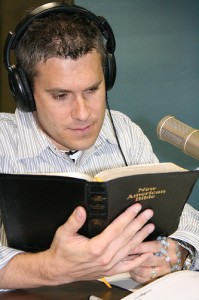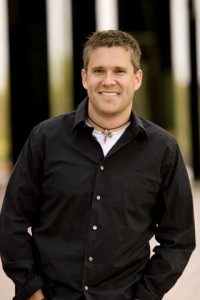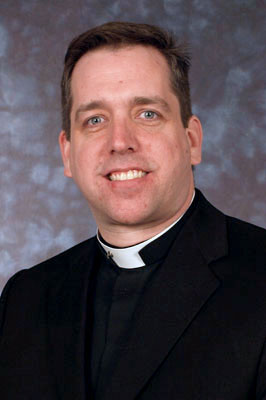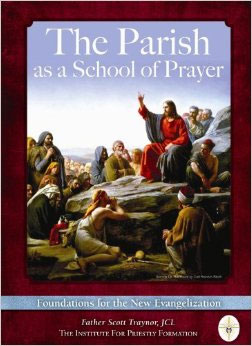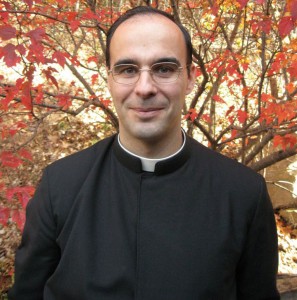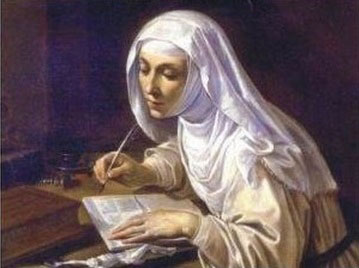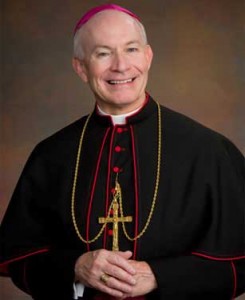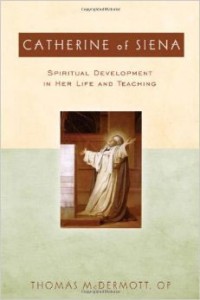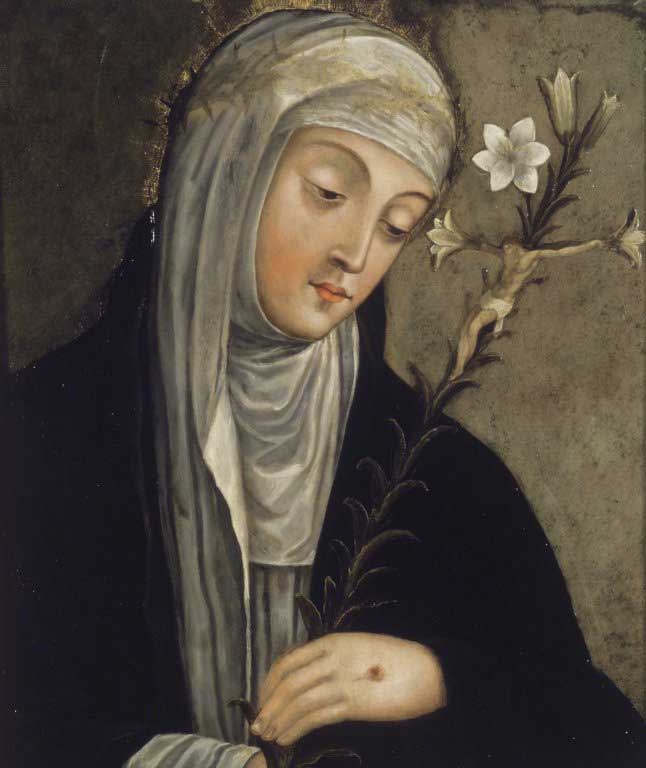The Gospel of John..it’s time, context, importance and relevance for today. Who was John? Who were the people he was addressing? What makes it unique?
[powerpress]
[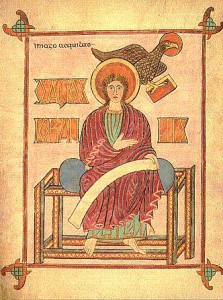 powerpress] Mark Hart is an author, speaker, director and teacher, Mark’s work both written and spoken, is known across the country and world. While he serves as the Vice President of LIFE TEEN, he is known to tens of thousands simply as the “Bible Geek ®†Mark passionately echoes the gospel to all he encounters. He is as deep as he is funny, and his love for his wife and daughters and son is second only to his immense love for Jesus Christ.
powerpress] Mark Hart is an author, speaker, director and teacher, Mark’s work both written and spoken, is known across the country and world. While he serves as the Vice President of LIFE TEEN, he is known to tens of thousands simply as the “Bible Geek ®†Mark passionately echoes the gospel to all he encounters. He is as deep as he is funny, and his love for his wife and daughters and son is second only to his immense love for Jesus Christ.
Tags: catholic, catholic podcast, catholic prayer, cathollc spirituality, mark hart
This entry was posted on Thursday, April 24th, 2014 at 10:34 am
You can follow any responses to this entry through the RSS 2.0 feed.
SP#8 The School of Prayer: Foundations for the New Evangelization
Fr. Scott Traynor talks about the relationship between our personal prayer and the sacramental life of prayer of the Church.  There is so much to encounter when we open up our hearts and minds to the experience of prayer found in the public worship of the Church.  Using the “ARRRR” method (Acknowledge, Relate, Recieve, and Respond) to enhance our prayer during the liturgy.
In Father Scott Traynor’s book, Blessed John Paul II’s memorable call to make of the parish a school of prayer takes on flesh and becomes concretely attainable. Those you read these faith-filled pages will find renewed desire to create such parishes and a clear road-map toward this goal.
–Father Timothy Gallagher, OMV
Father Scott Traynor received his STB from the Pontifical Gregorian University and his JCL from Catholic University of America. He has been an instructor and spiritual director for many of the programs at the Institute for Priestly Formation.
Father Traynor is a retreat master and spiritual director who has travelled the country as a speaker at various conferences, diocesan gatherings and national conferences.. He is especially sought after to present on the topics of prayer, discernment and priestly identity and mission.
He serves the Rector of the St. John Vianney Theological Seminary in Denver Colorado.
Tags: catholic, catholic podcast, catholic prayer, cathollc spirituality, Father Scott Traynor, Father Traynor, new evangelization, Scott Traynor
This entry was posted on Thursday, April 24th, 2014 at 6:02 am
You can follow any responses to this entry through the RSS 2.0 feed.
FG#15 – The Way of Trust and Love Ep4 – Fountains of Grace: reflections on contemporary spiritual classics with Donna Garrett Join host Donna Garrett, with Fr. James Perez, LC, as they discuss the spiritual classic “The Way of Trust and Love: A Retreat Guided By St. Therese of Lisieux” by Fr. Jacques Philippe. [powerpress] Discussed in this episode, among other topics, from “The Way of Trust and Love”
Join host Donna Garrett, with Fr. James Perez, LC, as they discuss the spiritual classic “The Way of Trust and Love: A Retreat Guided By St. Therese of Lisieux” by Fr. Jacques Philippe. [powerpress] Discussed in this episode, among other topics, from “The Way of Trust and Love”
Whatever our personal limitations and situations, we can all love right where we are: in the kitchen, the bathroom, the office— it makes no difference. What the Church needs most is genuine love. We attach too much importance to externals, actions, and visible effectiveness, whereas all that counts, all that really bears fruit in the Church, is the truth and purity and sincerity of love; that is what we should ask God for most of all and put into practice.
Philippe, Jacques (2012-06-07). The Way of Trust and Love – A Retreat Guided by St. Therese of Lisieux (Kindle Locations 731-734). Scepter Publishers. Kindle Edition.
For other episodes in the this series click here “Fountains of Grace w/Donna Garrett“
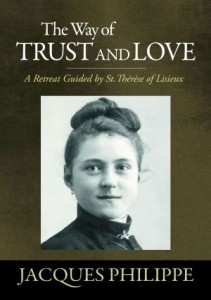 You can find “The Way of Trust and Love” here
You can find “The Way of Trust and Love” here
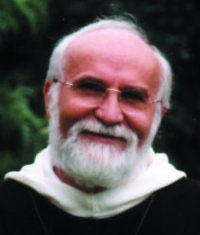
Fr. Jacques Philippe
Tags: catholic, catholic podcast, catholic prayer, cathollc spirituality, Donna Garrett, Jacques Philippe, James Perez
This entry was posted on Thursday, April 24th, 2014 at 6:01 am
You can follow any responses to this entry through the RSS 2.0 feed.
To Nanna, daughter of Benincasa, a little maid, her niece, in Florence:
 Now, then, we must have light–otherwise it would not be enough. This light has to be the light of most holy faith. But the saints say that faith without works is dead. Therefore we need to exert ourselves virtuously all the time, and leave our childishness and vanities, and not behave any longer like worldly girls, but like faithful brides consecrated to Christ crucified; in this way we shall have a lamp, and oil, and light.
Heavenly Father, your glory is in your saints. We praise your glory in the life of the admirable St. Catherine of Siena, virgin and doctor of the Church. Her whole life was a noble sacrifice inspired by an ardent love of Jesus, your unblemished Lamb. In troubled times she strenuously upheld the rights of His beloved spouse, The Church. Father, honor her merits and hear her prayers for each of us. Help us to pass unscathed through the corruption of this world, and to remain unshakably faithful to the church in word, deed, and example. Help us always to see in the Vicar of Christ an anchor in the storms of life, and a beacon of light to the harbor of your Love, in this dark night of your times and men’s souls. Grant also to each of us our special petition . . . (pause to pray for your own intentions). We ask this through Jesus, your Son, in the bond of the Holy Spirit. Amen.
St. Catherine of Siena, Pray for us.
For the complete novena visit the St. Catherine of Siena Novena Page
Tags: catholic, catholic podcast, catholic prayer, cathollc spirituality
This entry was posted on Thursday, April 24th, 2014 at 5:15 am
You can follow any responses to this entry through the RSS 2.0 feed.
USCCA40Â Â Chapter 31Â -Â Do Not Steal – Act Justly: The 7th Commandment
[powerpress]
Archbishop Lucas offers insights on the US Catholic Catechism for Adults Chapter 31:
The Seventh Commandment forbids stealing or theft, which involves taking someone’s money or property “against the reasonable will of the owner.†Theft includes not only robbery but also actions such as embezzlement, computer theft, counterfeit money, fraud, identity theft, copyright violations (including pirating things such as music or computer software), and mail scams.
To keep this Commandment, we need to acquire the virtues of moderation in our possessions, justice in our treatment of others, respect for their human dignity, and solidarity with all peoples. Moderation curbs our attachment to worldly goods and restrains our appetite for consumerism. Justice helps us respect our neighbor’s rights and be interested in their human well-being. Solidarity opens our hearts to identifying with the whole human family, reminding us of our common humanity.
We should not steal from each other, pay unfair salaries, cheat in business, or exploit people’s weaknesses to make money. Promises should be kept and contracts honored to the extent that the issues are morally just (cf. CCC, no. 2410). We need to safeguard property rights, pay our debts, and fulfill obligations freely incurred. The government has the right and duty to safeguard legitimate ownership of money and property and to protect people from robbery and injury.
United States Conference of Catholic Bishops (USCCB) (2012-04-02). United States Catholic Catechism for Adults (Kindle Locations 6057-6066). United States Conference of Catholic Bishops (USCCB). Kindle Edition.
The Most Reverend George J. Lucas leads the Archdiocese of Omaha.Â
For other episodes in the visit our Archbishop George Lucas page
This programs is based on:
More information can be found here.
We wish to thank the USCCB for the permissions granted for use of  relevant material used in this series.
Tags: catholic, catholic podcast, catholic prayer, cathollc spirituality, George Lucas, United States Catholic Catechism, United States Conference of Catholic Bishops
This entry was posted on Wednesday, April 23rd, 2014 at 7:00 am
You can follow any responses to this entry through the RSS 2.0 feed.
Don’t have to time pray? Think twice….Join Teresa Monaghen, of Pro Sanctity, as she of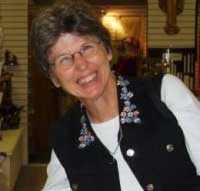 fers a “Personal Plan for Holiness”. Listen along with these short, but beautiful meditations which encourage us to continue on our journey as “saints in the making”!
fers a “Personal Plan for Holiness”. Listen along with these short, but beautiful meditations which encourage us to continue on our journey as “saints in the making”!
[powerpress]
Learn more about Pro Sanctity at www.prosanctity.org
Tags: catholic, catholic podcast, catholic prayer, cathollc spirituality, personal plan, pro sanctity, teresa monaghen
This entry was posted on Wednesday, April 23rd, 2014 at 5:58 am
You can follow any responses to this entry through the RSS 2.0 feed.
[powerpress]
Day 3
The Eternal Father speaks to Catherine: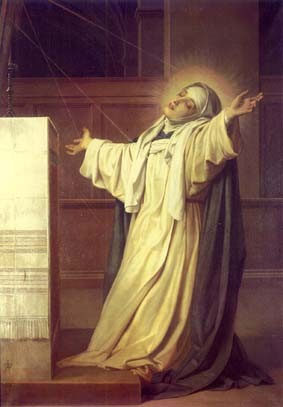
Dearest daughter, contemplate the marvelous state of the soul who receives this bread of life, this food of angels, as she ought. When she receives this sacrament she lives in me and I in her. Just as the fish is in the sea and the sea in the fish, so am I in the soul and the soul in me, the sea of peace. Grace lives in such a soul because, having received this bread of life in grace, she lives in grace.
Heavenly Father, your glory is in your saints. We praise your glory in the life of the admirable St. Catherine of Siena, virgin and doctor of the Church. Her whole life was a noble sacrifice inspired by an ardent love of Jesus, your unblemished Lamb. In troubled times she strenuously upheld the rights of His beloved spouse, The Church. Father, honor her merits and hear her prayers for each of us. Help us to pass unscathed through the corruption of this world, and to remain unshakably faithful to the church in word, deed, and example. Help us always to see in the Vicar of Christ an anchor in the storms of life, and a beacon of light to the harbor of your Love, in this dark night of your times and men’s souls. Grant also to each of us our special petition . . . (pause to pray for your own intentions). We ask this through Jesus, your Son, in the bond of the Holy Spirit. Amen.
St. Catherine of Siena, Pray for us.
For the complete novena visit the St. Catherine of Siena Novena Page
Tags: Catherine, catholic, catholic podcast, catholic prayer, cathollc spirituality, soul, st catherine of siena, St. Catherine of Siena Novena
This entry was posted on Wednesday, April 23rd, 2014 at 5:12 am
You can follow any responses to this entry through the RSS 2.0 feed.
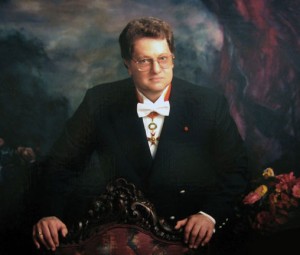 A very special “Inside the Pages” with Sir Gilbert Levine, who shares from his heart, this compelling tale of faith, friendship, and the healing power of music to bring people together. “The Pope’s Maestro” is an extraordinary and inspirational story of the unlikely friendship of  Sir Gilbert Levine and Pope John Paul II, who collaborated on symbolic acts of reconciliation: a series of internationally broadcast concerts designed to bring together people from all religious backgrounds under the auspices of the Vatican. Sir Gilbert  invites us all in to share in the special relationship bonded in music, prayer, and…love.
A very special “Inside the Pages” with Sir Gilbert Levine, who shares from his heart, this compelling tale of faith, friendship, and the healing power of music to bring people together. “The Pope’s Maestro” is an extraordinary and inspirational story of the unlikely friendship of  Sir Gilbert Levine and Pope John Paul II, who collaborated on symbolic acts of reconciliation: a series of internationally broadcast concerts designed to bring together people from all religious backgrounds under the auspices of the Vatican. Sir Gilbert  invites us all in to share in the special relationship bonded in music, prayer, and…love. 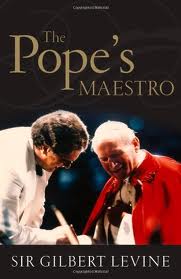 [powerpress] You can find more about this wonderful book here
[powerpress] You can find more about this wonderful book here
Tags: catholic, catholic podcast, catholic prayer, cathollc spirituality
This entry was posted on Wednesday, April 23rd, 2014 at 12:32 am
You can follow any responses to this entry through the RSS 2.0 feed.
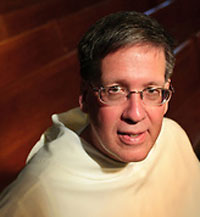 Episode 7Â St. Catherine of Siena: Her Life and Teachings with Fr. Thomas McDermott
Episode 7Â St. Catherine of Siena: Her Life and Teachings with Fr. Thomas McDermott
[powerpress]
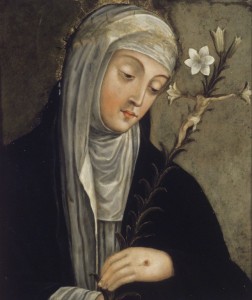 In this episode, Fr. McDermott aids in our understanding of St. Catherine’s teachings on the “stages” of our spiritual life.
In this episode, Fr. McDermott aids in our understanding of St. Catherine’s teachings on the “stages” of our spiritual life.
What is the proper understanding of grace and sharing in the Divine Life.  Good feelings, consolations, joy are experiences during the second step on the “Christ-Bridge”.  The concern of “falling  in love more with the gifts rather than with the Giver” is discussed.  The danger of spiritual gluttony and pride, as well as the need to care for one’s neighbor are essential elements in St. Catherine’s teachings.  Fr. McDermott also reflects on her teachings about the Divine Fire and gift of Tears.
Fr. Thomas McDermott, OP is Regent of Studies for the Dominican Province of St. Albert the Great and is the author of “Catherine of Siena: Spiritual Development in Her Life and Teaching” (Paulist, 2008) and “Filled with all the Fullness of God: An Introduction to Catholic Spirituality”. He obtained a doctorate in spiritual theology from the Angelicum and taught for several years at Kenrick-Glennon Seminary in St. Louis. He crrently serves as pastor at St. Vincent Ferrer, in Chicago, IL.
Tags: catholic, catholic podcast, catholic prayer, cathollc spirituality, McDermott, st catherine of siena, Thomas McDermott
This entry was posted on Tuesday, April 22nd, 2014 at 11:10 am
You can follow any responses to this entry through the RSS 2.0 feed.
The Eternal Father speaks to Catherine:
My Truth invited you to call out thus when He said: “Call and you will be answered; knock and it shall be opened to you; ask and it shall be given to you.” So I am telling you what I want you to do. Never relax your desire to ask for My help. Never lower you voice in crying out to Me to be merciful to the world. Never stop knocking at the door of my Truth by following in His footsteps. Find your delight with Him on the cross by feeding on souls for the glory and praise of My Name.
Heavenly Father, your glory is in your saints. We praise your glory in the life of the admirable St. Catherine of Siena, virgin and doctor of the Church. Her whole life was a noble sacrifice inspired by an ardent love of Jesus, your unblemished Lamb. In troubled times she strenuously upheld the rights of His beloved spouse, The Church. Father, honor her merits and hear her prayers for each of us. Help us to pass unscathed through the corruption of this world, and to remain unshakably faithful to the church in word, deed, and example. Help us always to see in the Vicar of Christ an anchor in the storms of life, and a beacon of light to the harbor of your Love, in this dark night of your times and men’s souls. Grant also to each of us our special petition . . . (pause to pray for your own intentions). We ask this through Jesus, your Son, in the bond of the Holy Spirit. Amen.
St. Catherine of Siena, Pray for us.
(First paragraph excerpt taken from  Dialogue of St Catherine,(Chapter 107), Translated by Suzanne Noffke, Classics of Western Spirituality Series.)
For the complete novena visit the St. Catherine of Siena Novena Page
Tags: catholic, catholic podcast, catholic prayer, cathollc spirituality
This entry was posted on Tuesday, April 22nd, 2014 at 11:00 am
You can follow any responses to this entry through the RSS 2.0 feed.
Episode 10Â -The Way of Mystery: The Eucharist and Moral Living 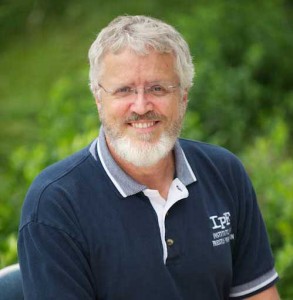
The Liturgy of the Eucharist part 2 : The True Meaning of “Full and Active Participation”…The Purpose of the Eucharistic Prayer.
[powerpress]
For more episodes in “The Way of Mystery” Series click here
Deacon James Keating, PhD, the director of Theological Formation for the Institute for Priestly Formation, located at Creighton University, in Omaha, is making available to â€Discerning Hearts†and all who listen, his series of programs entitled “The Way of Mysteryâ€.
 The Vatican II documents remind us that the spiritual journey is not made in a vacuum, that God has chosen to save us, not individually, but as The People of God. The Eucharist must help Christians to make their choices by discerning out of Christ’s paschal mystery. For this process to take place, however, Christians must first understand how the Eucharist puts them in touch with Christ’s passion, death, and resurrection, and what concrete implications being in touch with this mystery has for their daily lives.
The Vatican II documents remind us that the spiritual journey is not made in a vacuum, that God has chosen to save us, not individually, but as The People of God. The Eucharist must help Christians to make their choices by discerning out of Christ’s paschal mystery. For this process to take place, however, Christians must first understand how the Eucharist puts them in touch with Christ’s passion, death, and resurrection, and what concrete implications being in touch with this mystery has for their daily lives.
For more information on the “Institute of Priestly Formation†and for other material available by Deacon Keating, just click here
Don’t forget to pickup a copy of “Communion with Christ†, it is one of the best audio sets on prayer…ever!
Check out Deacon Keating’s “Discerning Heart†page
Tags: catholic, catholic podcast, catholic prayer, cathollc spirituality
This entry was posted on Tuesday, April 22nd, 2014 at 7:32 am
You can follow any responses to this entry through the RSS 2.0 feed.
Dr. Matthew Bunson discusses the life, times and teachings of St. John Damascene pt 2  [powerpress]
[powerpress]
-
Born: 676 AD, Damascus, Syria
-
Died: December 4, 749 AD, Mar Saba, Jordan
John Damascene extends these fundamental ideas to the veneration of the relics of Saints, on the basis of the conviction that the Christian Saints, having become partakers of the Resurrection of Christ, cannot be considered simply “dead”. Numbering, for example, those whose relics or images are worthy of veneration, John states in his third discourse in defence of images: “First of all (let us venerate) those among whom God reposed, he alone Holy, who reposes among the Saints (cf. Is 57: 15), such as the Mother of God and all the Saints. These are those who, as far as possible, have made themselves similar to God by their own will; and by God’s presence in them, and his help, they are really called gods (cf. Ps 82[81]: 6), not by their nature, but by contingency, just as the red-hot iron is called fire, not by its nature, but by contingency and its participation in the fire. He says in fact : you shall be holy, because I am Holy (cf. Lv 19: 2)” (III, 33, col. 1352 a). After a series of references of this kind, John Damascene was able serenely to deduce: “God, who is good, and greater than any goodness, was not content with the contemplation of himself, but desired that there should be beings benefited by him, who might share in his goodness: therefore he created from nothing all things, visible and invisible, including man, a reality visible and invisible. And he created him envisaging him and creating him as a being capable of thought (ennoema ergon), enriched with the word (logo[i] sympleroumenon), and orientated towards the spirit (pneumati teleioumenon)” (II, 2, pg 94, col. 865a). And to clarify this thought further, he adds: “We must allow ourselves to be filled with wonder (thaumazein) at all the works of Providence (tes pronoias erga), to accept and praise them all, overcoming any temptation to identify in them aspects which to many may seem unjust or iniquitous, (adika), and admitting instead that the project of God (pronoia) goes beyond man’s capacity to know or to understand (agnoston kai akatalepton), while on the contrary only he may know our thoughts, our actions, and even our future” (ii, 29, pg 94, col. 964c). Plato had in fact already said that all philosophy begins with wonder. Our faith, too, begins with wonder at the very fact of the Creation, and at the beauty of God who makes himself visible.The optimism of the contemplation of nature (physike theoria), of seeing in the visible creation the good, thebeautiful, the true, this Christian optimism, is not ingenuous: it takes account of the wound inflicted on human nature by the freedom of choice desired by God and misused by man, with all the consequences of widespread discord which have derived from it. From this derives the need, clearly perceived by John Damascene, that nature, in which the goodness and beauty of God are reflected, wounded by our fault, “should be strengthened and renewed” by the descent of the Son of God in the flesh, after God had tried in many ways and on many occasions, to show that he had created man so that he might exist not only in “being”, but also in “well-being” (cf. The Orthodox Faith, II, 1, pg 94, col. 981). With passionate eagerness John explains: “It was necessary for nature to be strengthened and renewed, and for the path of virtue to be indicated and effectively taught (didachthenai aretes hodòn), the path that leads away from corruption and towards eternal life…. So there appeared on the horizon of history the great sea of love that God bears towards man (philanthropias pelagos)”…. It is a fine expression. We see on one side the beauty of Creation, and on the other the destruction wrought by the fault of man. But we see in the Son of God, who descends to renew nature, the sea of love that God has for man. John Damascene continues: “he himself, the Creator and the Lord, fought for his Creation, transmitting to it his teaching by example…. And so the Son of God, while still remaining in the form of God, lowered the skies and descended… to his servants… achieving the newest thing of all, the only thing really new under the sun, through which he manifested the infinite power of God” (III, 1, pg 94, col. 981c-984b).
We may imagine the comfort and joy which these words, so rich in fascinating images, poured into the hearts of the faithful. We listen to them today, sharing the same feelings with the Christians of those far-off days: God desires to repose in us, he wishes to renew nature through our conversion, he wants to allow us to share in his divinity. May the Lord help us to make these words the substance of our lives.
For more visit Vatican.va
Dr. Matthew Bunson, Senior Fellow of the St. Paul Center for Biblical Theology, is one of the United States’ leading authorities on the papacy and the Church. His books include: The Encyclopedia of Catholic History; The Encyclopedia of Saints; Papal Wisdom; All Shall Be Well; Encyclopedia of the Roman Empire; and The Angelic Doctor: The Life and World of St. Thomas Aquinas; The Pope Encyclopedia; We Have a Pope! Benedict XVI, the first Catholic biography of the Holy Father in the English language; the Encyclopedia of U.S. Catholic History; Pope Francis. His also the editor of OSV’s “The Catholic Answer” magazine.
Tags: catholic, catholic podcast, catholic prayer, cathollc spirituality
This entry was posted on Tuesday, April 22nd, 2014 at 7:21 am
You can follow any responses to this entry through the RSS 2.0 feed.
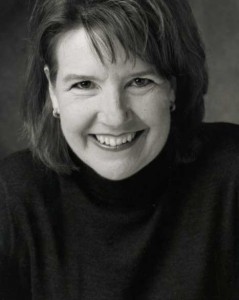 Episode 15- Seeking Truth with Sharon Doran -Announcement of the Kingdom Of God (PART 1)
Episode 15- Seeking Truth with Sharon Doran -Announcement of the Kingdom Of God (PART 1)
[powerpress]
Episode 15 –
Beatitudes (part 1)
“Blessed are…..â€
The Beatitudes. So familiar, yet do we really understand them?
In this lecture, Sharon blazes through the history of Israel, setting the stage for a deeper understanding of the meaning of the Beatitudes.
The occupied, oppressed nation of Israel was yearning for a savior, a savior that would rid them of centuries of foreign occupation.
Then Jesus arrives, working amazing miracles.
Could He be the One??
Expectations are high, but expectations are turned inside-out as Jesus proclaims the paradoxical truths of the Beatitudes.
Sharon Doran serves as the teaching director of “Seeking Truth.†An experienced Bible Study teacher, Sharon has a passion for scripture that will motivate and challenge you to immerse yourself in God’s Word and apply His message to your every day life.
 “Seeking Truth†is an in depth Catholic Bible Study, commissioned by the Archdiocese of Omaha in response to John Paul II’s call to the New Evangelization as well as Pope Benedict XVI’s exhortation for all Catholics to study scripture. To learn more go to:www.seekingtruth.net
“Seeking Truth†is an in depth Catholic Bible Study, commissioned by the Archdiocese of Omaha in response to John Paul II’s call to the New Evangelization as well as Pope Benedict XVI’s exhortation for all Catholics to study scripture. To learn more go to:www.seekingtruth.net
Tags: beatitudes, catholic, catholic podcast, catholic prayer, cathollc spirituality, Sharon Doran, The Beatitudes
This entry was posted on Tuesday, April 22nd, 2014 at 6:08 am
You can follow any responses to this entry through the RSS 2.0 feed.
Dr. Matthew Bunson discusses the life, times and teachings of St. Cyril of Alexandria
[powerpress]
-
Born: 378 AD, Alexandria, Egypt
-
Died: June 27, 444 AD, Alexandria, Egypt
Cyril’s writings – truly numerous and already widely disseminated in various Latin and Eastern translations in his own lifetime, attested to by their instant success – are of the utmost importance for the history of Christianity. His commentaries on many of the New and Old Testament Books are important, including those on the entire Pentateuch, Isaiah, the Psalms and the Gospels of John and Luke. Also important are his many doctrinal works, in which the
defence of the Trinitarian faith against the Arian and Nestorian theses recurs. The basis of Cyril’s teaching is the ecclesiastical tradition and in particular, as I mentioned, the writings of Athanasius, his great Predecessor in the See of Alexandria. Among Cyril’s other writings, the books Against Julian deserve mention. They were the last great response to the anti-Christian controversies, probably dictated by the Bishop of Alexandria in the last years of his life to respond to the work Against the Galileans, composed many years earlier in 363 by the Emperor known as the “Apostate” for having abandoned the Christianity in which he was raised.
The Christian faith is first and foremost the encounter with Jesus, “a Person, which gives life a new horizon” (Deus Caritas Est, n. 1). St Cyril of Alexandria was an unflagging, staunch witness of Jesus Christ, the Incarnate Word of God, emphasizing above all his unity, as he repeats in 433 in his first letter (PG 77, 228-237) to Bishop Succensus: “Only one is the Son, only one the Lord Jesus Christ, both before the Incarnation and after the Incarnation. Indeed, the Logos born of God the Father was not one Son and the one born of the Blessed Virgin another; but we believe that the very One who was born before the ages was also born according to the flesh and of a woman”. Over and above its doctrinal meaning, this assertion shows that faith in Jesus the Logos born of the Father is firmly rooted in history because, as St Cyril affirms, this same Jesus came in time with his birth from Mary, the Theotò-kos, and in accordance with his promise will always be with us. And this is important: God is eternal, he is born of a woman, and he stays with us every day. In this trust we live, in this trust we find the way for our life.
For more visit Vatican.va
Dr. Matthew Bunson, Senior Fellow of the St. Paul Center for Biblical Theology, is one of the United States’ leading authorities on the papacy and the Church.
His books include: The Encyclopedia of Catholic History; The Encyclopedia of Saints; Papal Wisdom; All Shall Be Well; Encyclopedia of the Roman Empire; and The Angelic Doctor: The Life and World of St. Thomas Aquinas; The Pope Encyclopedia; We Have a Pope! Benedict XVI, the first Catholic biography of the Holy Father in the English language; the Encyclopedia of U.S. Catholic History; Pope Francis. His also the editor of OSV’s “The Catholic Answer” magazine.
Tags: catholic, catholic podcast, catholic prayer, cathollc spirituality, jesus christ, matthew bunson
This entry was posted on Sunday, January 12th, 2014 at 5:36 pm
You can follow any responses to this entry through the RSS 2.0 feed.
Dr. Matthew Bunson discusses the life, times and teachings of St. Jerome
[powerpress]
Jerome
-Â Letters
-Â The Perpetual Virginity of Blessed Mary
-Â To Pammachius Against John of Jerusalem
-Â The Dialogue Against the Luciferians
-Â The Life of Malchus, the Captive Monk
-Â The Life of S. Hilarion
-Â The Life of Paulus the First Hermit
-Â Against Jovinianus
-Â Against Vigilantius
-Â Against the Pelagians
-Â Prefaces
-Â De Viris Illustribus (Illustrious Men)
-Â Apology for himself against the Books of Rufinus
Jerome was born into a Christian family in about 347 A.D. in Stridon. He was given a good education and was even sent to Rome to fine-tune his studies. As a young man he was attracted by the worldly life (cf. Ep 22, 7), but his desire for and interest in the Christian religion prevailed.
He received Baptism in about 366 and opted for the ascetic life. He went to Aquileia and joined a group of fervent Christians that had formed around Bishop Valerian and which he described as almost “a choir of blesseds” (Chron. ad ann. 374). He then left for the East and lived as a hermit in the Desert of Chalcis, south of Aleppo (Ep 14, 10), devoting himself assiduously to study. He perfected his knowledge of Greek, began learning Hebrew (cf. Ep 125, 12), and transcribed codices and Patristic writings (cf. Ep 5, 2). Meditation, solitude and contact with the Word of God helped his Christian sensibility to mature. He bitterly regretted the indiscretions of his youth (cf. Ep. 22, 7) and was keenly aware of the contrast between the pagan mentality and the Christian life: a contrast made famous by the dramatic and lively “vision” – of which he has left us an account – in which it seemed to him that he was being scourged before God because he was “Ciceronian rather than Christian” (cf. Ep. 22, 30).In 382 he moved to Rome: here, acquainted with his fame as an ascetic and his ability as a scholar, Pope Damasus engaged him as secretary and counsellor; the Pope encouraged him, for pastoral and cultural reasons, to embark on a new Latin translation of the Biblical texts. Several members of the Roman aristocracy, especially noblewomen such as Paula, Marcella, Asella, Lea and others, desirous of committing themselves to the way of Christian perfection and of deepening their knowledge of the Word of God, chose him as their spiritual guide and teacher in the methodical approach to the sacred texts. These noblewomen also learned Greek and Hebrew.
After the death of Pope Damasus, Jerome left Rome in 385 and went on pilgrimage, first to the Holy Land, a silent witness of Christ’s earthly life, and then to Egypt, the favourite country of numerous monks (cf. Contra Rufinum, 3, 22; Ep. 108, 6-14). In 386 he stopped in Bethlehem, where male and female monasteries were built through the generosity of the noblewoman, Paula, as well as a hospice for pilgrims bound for the Holy Land, “remembering Mary and Joseph who had found no room there” (Ep. 108, 14).
He stayed in Bethlehem until he died, continuing to do a prodigious amount of work: he commented on the Word of God; he defended the faith, vigorously opposing various heresies; he urged the monks on to perfection; he taught classical and Christian culture to young students; he welcomed with a pastor’s heart pilgrims who were visiting the Holy Land. He died in his cell close to the Grotto of the Nativity on 30 September 419-420.
Jerome’s literary studies and vast erudition enabled him to revise and translate many biblical texts: an invaluable undertaking for the Latin Church and for Western culture. On the basis of the original Greek and Hebrew texts, and thanks to the comparison with previous versions, he revised the four Gospels in Latin, then the Psalter and a large part of the Old Testament. Taking into account the original Hebrew and Greek texts of the Septuagint, the classical Greek version of the Old Testament that dates back to pre-Christian times, as well as the earlier Latin versions, Jerome was able, with the assistance later of other collaborators, to produce a better translation: this constitutes the so-called “Vulgate”, the “official” text of the Latin Church which was recognized as such by the Council of Trent and which, after the recent revision, continues to be the “official” Latin text of the Church. It is interesting to point out the criteria which the great biblicist abided by in his work as a translator. He himself reveals them when he says that he respects even the order of the words of the Sacred Scriptures, for in them, he says, “the order of the words is also a mystery” (Ep. 57, 5), that is, a revelation. Furthermore, he reaffirms the need to refer to the original texts: “Should an argument on the New Testament arise between Latins because of interpretations of the manuscripts that fail to agree, let us turn to the original, that is, to the Greek text in which the New Testament was written. “Likewise, with regard to the Old Testament, if there are divergences between the Greek and Latin texts we should have recourse to the original Hebrew text; thus, we shall be able to find in the streams all that flows from the source” (Ep. 106, 2). Jerome also commented on many biblical texts. For him the commentaries had to offer multiple opinions “so that the shrewd reader, after reading the different explanations and hearing many opinions – to be accepted or rejected – may judge which is the most reliable, and, like an expert moneychanger, may reject the false coin” (Contra Rufinum 1, 16).
Jerome refuted with energy and liveliness the heretics who contested the tradition and faith of the Church. He also demonstrated the importance and validity of Christian literature, which had by then become a real culture that deserved to be compared with classical literature: he did so by composing his De Viris Illustribus, a work in which Jerome presents the biographies of more than a hundred Christian authors. Further, he wrote biographies of monks, comparing among other things their spiritual itineraries as well as monastic ideal. In addition, he translated various works by Greek authors. Lastly, in the important Epistulae, a masterpiece of Latin literature, Jerome emerges with the profile of a man of culture, an ascetic and a guide of souls.
What can we learn from St Jerome? It seems to me, this above all; to love the Word of God in Sacred Scripture. St Jerome said: “Ignorance of the Scriptures is ignorance of Christ”. It is therefore important that every Christian live in contact and in personal dialogue with the Word of God given to us in Sacred Scripture. This dialogue with Scripture must always have two dimensions: on the one hand, it must be a truly personal dialogue because God speaks with each one of us through Sacred Scripture and it has a message for each one. We must not read Sacred Scripture as a word of the past but as the Word of God that is also addressed to us, and we must try to understand what it is that the Lord wants to tell us. However, to avoid falling into individualism, we must bear in mind that the Word of God has been given to us precisely in order to build communion and to join forces in the truth on our journey towards God. Thus, although it is always a personal Word, it is also a Word that builds community, that builds the Church. We must therefore read it in communion with the living Church. The privileged place for reading and listening to the Word of God is the liturgy, in which, celebrating the Word and making Christ’s Body present in the Sacrament, we actualize the Word in our lives and make it present among us. We must never forget that the Word of God transcends time. Human opinions come and go. What is very modern today will be very antiquated tomorrow. On the other hand, the Word of God is the Word of eternal life, it bears within it eternity and is valid for ever. By carrying the Word of God within us, we therefore carry within us eternity, eternal life.
I thus conclude with a word St Jerome once addressed to St Paulinus of Nola. In it the great exegete expressed this very reality, that is, in the Word of God we receive eternity, eternal life. St Jerome said: “Seek to learn on earth those truths which will remain ever valid in Heaven” (Ep. 53, 10).
For more visit Vatican.va
Dr. Matthew Bunson, Senior Fellow of the St. Paul Center for Biblical Theology, is one of the United States’ leading authorities on the papacy and the Church.
His books include: The Encyclopedia of Catholic History; The Encyclopedia of Saints; Papal Wisdom; All Shall Be Well; Encyclopedia of the Roman Empire; and The Angelic Doctor: The Life and World of St. Thomas Aquinas; The Pope Encyclopedia; We Have a Pope! Benedict XVI, the first Catholic biography of the Holy Father in the English language; the Encyclopedia of U.S. Catholic History; Pope Francis. His also the editor of OSV’s “The Catholic Answer” magazine.
Tags: catholic, catholic podcast, catholic prayer, cathollc spirituality, Church, matthew bunson, sacred scripture, St Jerome
This entry was posted on Monday, November 25th, 2013 at 9:53 am
You can follow any responses to this entry through the RSS 2.0 feed.

